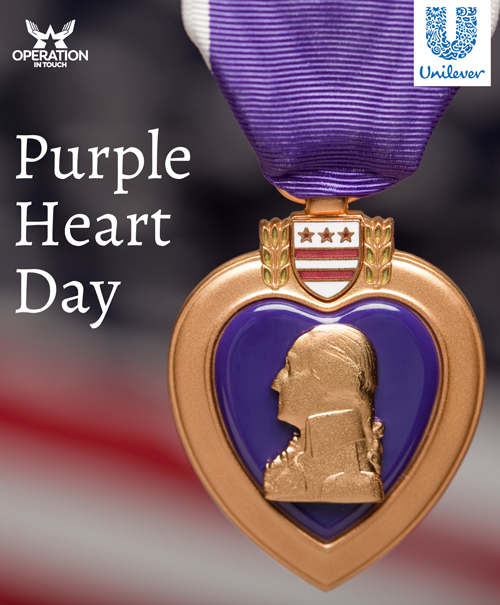
Purple Heart Day
On Purple Heart Day we remember and honor the men and women who bravely represented their country and were wounded or killed whilst serving. These people are decorated with a Purple Heart in the name of the President, and this day is for remembering them and their sacrifice. Some states, counties, and cities pause in recognition, as do some sports and entertainment entities. Military and veteran organizations also hold meetings for remembrance. So today we encourage you to make time to recognize the sacrifices of those who served. Share time as a family to discuss the importance and weight of the sacrifice made.
HISTORY OF PURPLE HEART DAY
The original Purple Heart, designated as a Badge of Merit, was awarded by George Washington in 1782. There was a lack of funds in the Continental Army at the time so the award was a way to honor enlisted and deserving people. The honor is presented to soldiers for “any singularly meritorious action.” It was designed with a piece of silk bound through it with a thin edge of silver. Washington only gave out three of the badges himself, and instead authorized subordinates to issue the badges as they saw fit.
The Badge of Merit faded from use but was revived and relaunched in 1932, this time as the Purple Heart. As well as honoring those wounded in combat, this iteration of the Purple Heart recognized commendable action. It was in 1944 that the policy was tweaked slightly and the Purple Heart was given the purpose we know it for today, specifically to honor those who have been wounded or died.
The first service member to be given the modern Purple Heart was General Douglas MacArthur for his service in the Pacific theater during World War II. In total there have been 1.8 million Purple Hearts awarded over the years.
Purple Heart Day was first observed in 2014 and has been observed every year since. It’s a chance to reflect on the bravery of those who have fought for the U.S. and to ensure that their courage is never forgotten.
Read the original article by clicking here. (Link opens in new window.)


